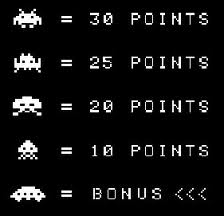This ComputerWorld article refers to businesses that have used online games to stimulate customer interest, involvement and eventually revenue for the business. “The Commonwealth Bank of Australia’s home loans division has employed gamification to boost revenue. It’s ‘Investorville’ app lets consumers go through a simulated process of property investment, with the aim of making people feel more comfortable about signing up for a CBA home loan.”
The article then goes on to ask the question – Can the same approach rekindle or kindle employee interest, participation, focus and effectiveness? I think I recall reading somewhere that some spy agencies are recruiting using online games. More for the nerd roles than the James Bond roles.
Certainly when you watch gamers, even non-obese ones with reasonable skin conditions, they seem very very focused. If that’s what you’re looking for in an employee then maybe consider gamification. But focus is a double-edged sword. Strong focus on one thing makes the brain very susceptible to not noticing anything else. I heard a radio interview yesterday with adventure racer Steve Gurney who, amongst his many adrenalin-fuelled experiences, had been hit by a train in the middle of a race. He had stopped on the crossing to look for the next marker. He was very competitive and focused on winning what was, in effect, a game. Very focused on one thing. The interviewer asked him how he had come to be hit by the noisy train. “I didn’t notice it…”
That quote might not be exact. Check out the whole interview here. He is an awesome achiever and I’m keen to check out his new book ‘Eating Dirt.’ Here’s the blurb: For adventurer Steve Gurney, life is about taking risks and he fears that New Zealand society has become over-regulated, risk-averse, and wrapped in cotton wool. His challenge is to let children make mistakes, climb trees and play bullrush – to help them learn how to find their limits in later life.
I also highly recommend the book ‘The Invisible Gorilla’ which expands on ‘Inattentional Blindness.’ Gurney’s train incident might be better labelled ‘Over-attentional Blindness.’ It wasn’t that he wasn’t paying attention. He was. It was just that the game blinkered that attention extremely narrowly. And that’s what happens in workplaces where the total focus is limited. Be it money or whatever, if workplace leaders using incentives or gamification to redirect or narrow the focus, just be aware of unintended consequences or the light at the end of your tunnel might be the headlamp of an oncoming train.
And, for banks, it shouldn’t be too hard for a game designer to make a version of Angry Birds called ‘Angry Investors.’


No comments:
Post a Comment